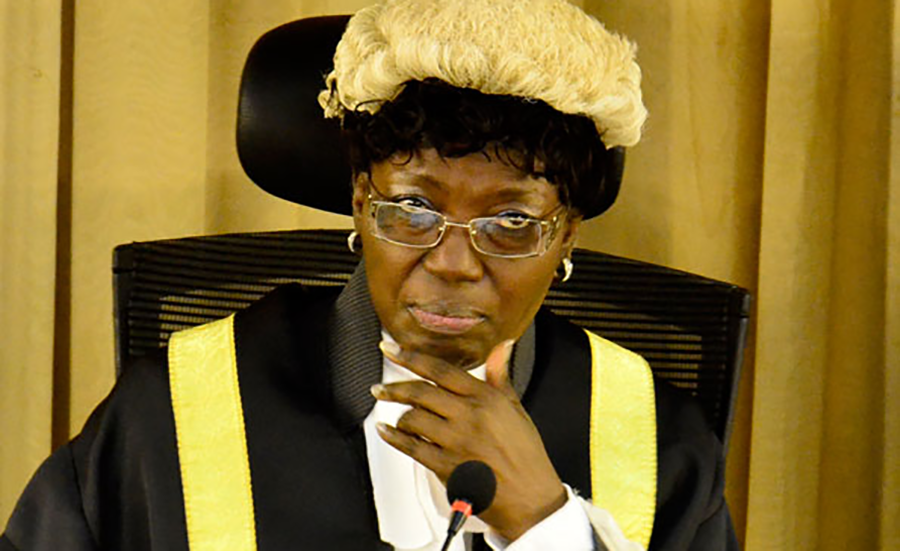
The Speaker of Parliament, Rebecca Kadaga, has urged to the Auditor General to ensure that the challenges in the decentralization of the pension management are addressed.
She made the call while receiving the Auditor General’s report for the period ending 31st December 2017, presented by the Auditor General, John F.S Muwanga, on Friday, 5th January 2018 at Parliament.
One of the key findings of the report indicates that the decentralization of pension management is not yet satisfactory, and therefore, pensioners are unlikely to receive their pension on time.
“I agree that the decentralization of pension continues to be a headache because many people do not know how to access their pension and we need to find a solution to this,” said Kadaga.
The report states that in the financial year 2014/15, Government partially decentralized pension management with the planning (budgeting) and processing of files done by Ministries, Departments and Agencies, and Local Governments.
Mr Muwanga said that pension gratuity was decentralized with arrears amounting to UShs 199 billion, which were disaggregated by votes and transferred to Ministry of Finance Planning and Economic Development.
However, so far, only UShs 7.4 billion an equivalent of 3.7% had been paid to 1,238 pensioners from 26 votes. The report findings further show that a review of the report on the assessment of the effectiveness of the decentralization of pension management revealed that only 37 districts were monitored during the financial year 2016/17.
“There is need for Government to empower the MDAs, and districts to streamline the pension management process through capacity building and regular supervision as well as establish a comprehensive pensioners’ database, which should regularly be updated,” noted Muwanga.
The report further indicates that implementation of the single spine extension system is yet another challenge. The government, through the Ministry of Agriculture, committed to provide support towards the implementation of the single spine agriculture extension system starting 2015/16 financial year in line with the reform of the National Agricultural Advisory Services (NAADS) to create a unified single spine extension system.
“The current extension to farmer ratio is 1:1,800 which is substantially lower than the recommended ratio of 1:500,” said Muwanga. He added that the planned number of staff to be recruited at district, Municipality and Sub County levels was 5,000 but by close of the financial year 2016/2017, the number of positions filled was only 2,760 leaving a staffing gap of 2,240.
Other key findings in the report include; inadequate controls surrounding management of domestic arrears, under collection of local revenue, land management weakness and lack of strategic plans for MDAs among others.
The Auditor General noted that despite the challenges, the overall performance of different entities is better than 2016/17 financial year.
“There is more consciousness by the accounting officers in ensuring that the financial statements and accounts submitted are of high quality and the accountability is properly done,” said Muwanga.
The Speaker acknowledged the improvement in the audit process. “We are happy that the reports are now timely processed and presented,” said Kadaga.
This year’s audit report has been shrunk into three stages which include performance report, audit findings and individual audit reports.
